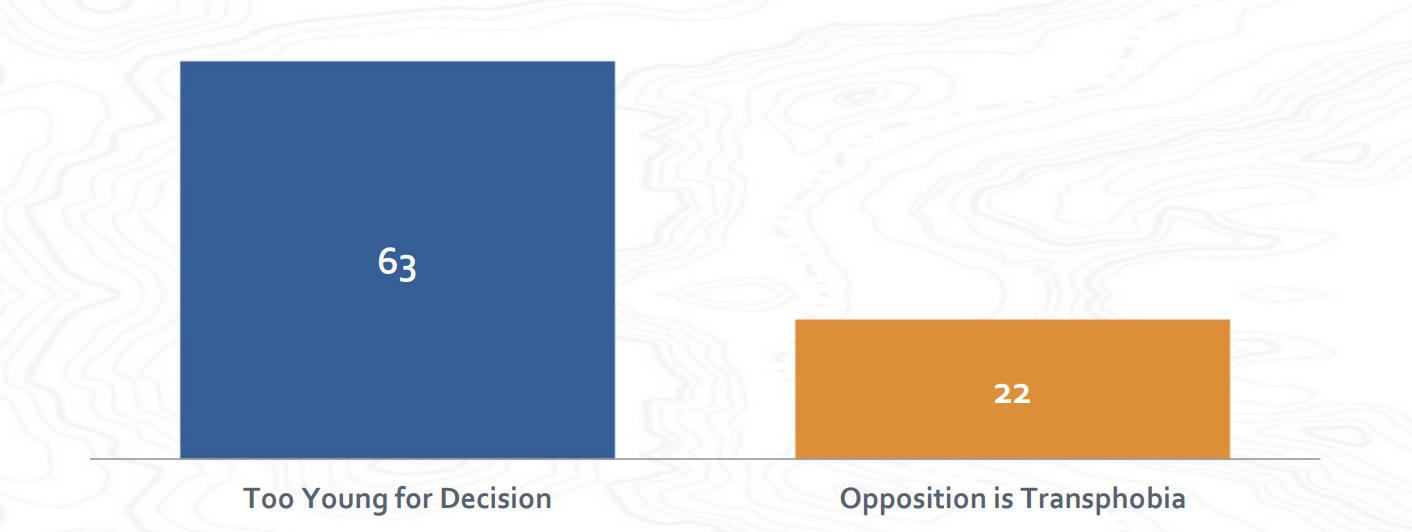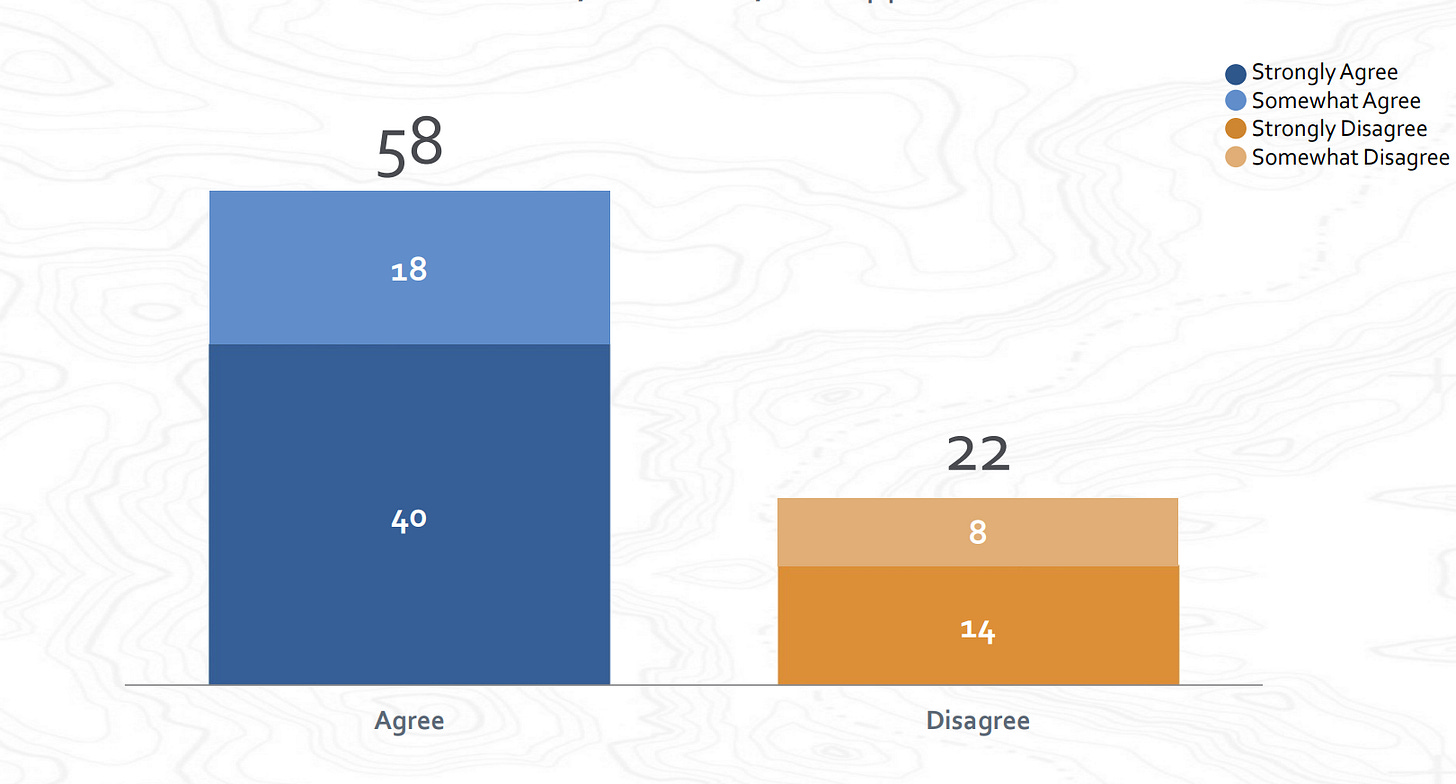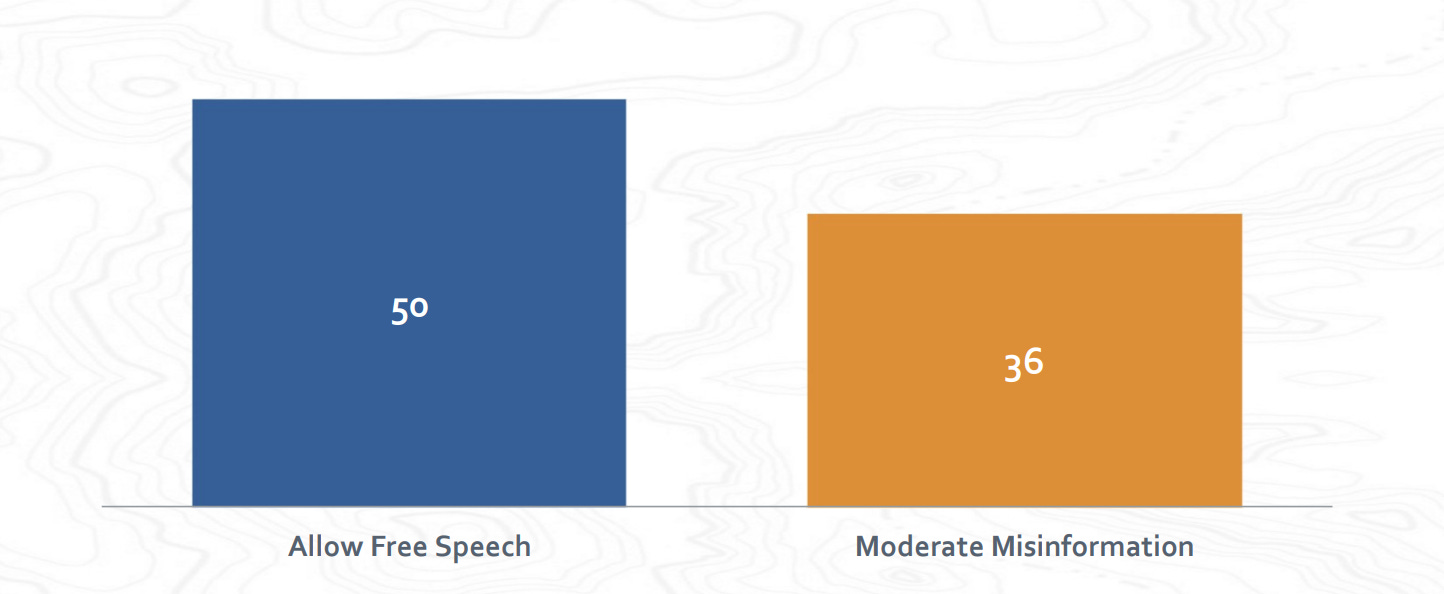New Polling Just Dropped
Making sense of voter sentiment on the culture war, pro-family economics, and Big Tech
As we prepare for the midterm elections, my organization, American Principles Project, wanted to test a number of important issues to see where voters stood. So, we partnered with OnMessage and went into the field in six battleground states: Arizona, Georgia, Nevada, New Hampshire, Pennsylvania, and Wisconsin.
We got some pretty fascinating results across the board. It is clear that voters are rejecting the Left’s anti-family cultural agenda wholesale. Some of the highlights:
Women’s Sports: 56 percent supported (33 percent opposed) laws to protect women’s sports at the K-12 and collegiate levels.
Sex Changes for Minors: 56 percent supported (31 percent opposed) laws banning puberty blockers, cross-sex hormones, and physical sex change surgeries for children.
Parental Notification: 59 percent supported (30 percent opposed) laws requiring schools to notify parents if their child identifies in class as transgender.
Age Verification for Porn: 77 percent supported (15 percent opposed) laws requiring age verification for accessing online pornography.
We also wanted to test out each side’s best arguments against each other to get a better feel for how the issue was being decided in the court of public opinion. We did this on all of the above topics:
Women's Sports
As you may have heard, there has recently been a debate regarding trans women competing in women’s high school and college sports. Specifically, I’m referring to biological males who now identify as female. With this in mind please tell me which of the following comes closest to your opinion.
Some (Other) people say that biological males should not be allowed to compete in women’s sports. They say that they have a clear, unfair advantage and allowing them to compete with women will rob female athletes of scholarships and other opportunities.
Other (Some) people say that trans women are women, and that not allowing them to compete with the gender they identify with is unfair discrimination.
It’s clear that both sides are trying to make an argument about fairness. Once voters have the opportunity to digest both arguments, 67 percent sided with the argument that it is unfair to allow biological males to compete, while just 19 percent sided with the argument that banning them from competing against women is unfair discrimination.
Sex Changes for Kids
As you may have heard, there has been a lot of debate recently about transgender children under the age of 18. Specifically, about whether to allow them to take puberty blockers, cross-sex hormones, and undergo physical surgeries to aid a gender transition from male to female or female to male. With this in mind please tell me which of the following comes closest to your opinion.
Some (Other) people say that allowing transgender children to begin gender transitions at early ages is life-saving medical treatment, and that studies show that denying them access to this type of treatment could result in suicide. They say that people who oppose this practice are only doing so out of transphobia and bigotry
Other (Some) people say it is wrong to push children into a sex change. They say that children are not able to make such a life altering decision at such a young age, and that many often regret it later in life. They also say that even the early stages of transition cause permanent physical changes and bodily harm, including sterilization and other medical complications.
The results here were absolutely shocking. I had no doubt in my mind that the Left’s prevailing argument on this issue — the one that Jen Psaki made from the podium — would help them close the gap. I was wrong. Voters in these battleground states moved our way dramatically after hearing both arguments. Instead of a +25 margin in our favor (56-31), the margin grew to +41 (63-22).
The lesson here for Republicans — really the most important takeaway from this entire poll — is that we’re winning on this issue. Don’t be afraid of it. Make the Democrats pay a political price for their extremism.
Parental Notification
There has been a lot of recent debate on the role parents should play in their children’s education. One major issue has been whether schools should be required to disclose to parents if children are publicly identifying themselves in class as transgender. With this in mind, please tell me which of the following comes closest to your opinion.
Parents have a fundamental right to know if their children publicly identify as transgender, and schools should disclose that information if they are aware of it.
Some advocates say that kids who identify as transgender could face abuse, abandonment, or neglect by their parents, and because of that, schools should be afforded broad rights to withhold information from parents.
This was another question where we assumed internally that we were going to see the Left close the gap by bringing up the possible edge cases. It didn’t work. Parental notification is enormously popular, and parental rights in general are a political winner.
Age Verification for Porn
Thinking about the proposal that Congress should require that pornography websites implement an age verification system to ensure that children cannot access adult content online, please tell me which of the following comes closest to your opinion.
Some people say that kids should not be accessing pornography online, and that pornography has been proven to be addictive and dangerous for children. This law is necessary to ensure that children are protected from harmful adult content.
Other people say that this law would place an unnecessary burden on adults and would infringe on their privacy by requiring them to identify themselves to the website before they can access pornography.
Age verification always polls well, which is why we wanted to see how it would fare when the other side got to make its best argument. Apparently the American people hate Reno v. ACLU! While the gap closed slightly from +62 (77-15) to +51 (67-16), voters largely support requiring age verification to access online pornography. Republicans would be smart to start talking about this!
Those were some of the cultural issues. Now let’s focus on a few more important questions we tested.
Increasing the Child Tax Credit
Some have proposed increasing the child tax credit, which is currently $2,000 per child. How do you feel about the child tax credit?
First and foremost, this is a huge vindication for the most popular provision in President Trump’s Tax Cuts and Jobs Act. It would appear that 73 percent of voters agree that the increase from $1,000 to $2,000 per child was a good thing. Just 9 percent opposed that significant tax cut for families.
But I will point out that only 33 percent support for a further increase (and only 20 percent among Republicans) is lower than expected. Previously, I had written that the Republicans might face political blowback for opposing the Democrats’ effort to increase the child tax credit and turn it into a monthly stipend. I likened it to a political “armageddon.” I think it’s fair to say that I was wrong in retrospect. The Biden child allowance wasn’t popular. It expired in December and no one seemed to care. Means testing and benefit targeting are clearly more important to voters than some of us way-too-online pro-family populists may have realized.
Paid Family Leave
While federal law allows for new parents to take up to 12 weeks off work unpaid, many parents do not have the financial resources to do so. Some have proposed that Congress should establish a paid family leave program to give all new parents regardless of income the ability to take at least two weeks off work without putting their financial security at risk. Would you support or oppose such a law?
Paid family leave is extremely popular. Even 56 percent of Republicans said they would support a federal program to give new parents a couple weeks of paid time off. While the specifics of the policy always matter, it would be wise for Republicans to embrace this issue as a way to make inroads with young families. We’ve already seen proposals in this vein from Sen. Marco Rubio, Sen. Mike Lee, and Sen. Bill Cassidy. My organization has endorsed all three.
Big Tech Antitrust
Turning to a different topic, please tell me if you agree or disagree with the following statement. Congress should pass bipartisan antitrust legislation that would rein in the power of the largest tech companies, such as Google, Amazon, Facebook, and Apple.
At this point, people shouldn’t be very surprised by the American people’s support for antitrust enforcement against the Big Tech companies. Last month, I highlighted a poll from Taxpayers Protection Alliance that got more specific than our question and found even larger support — 68 percent — for antitrust.
Incredibly, we found little difference of opinion on this issue between Republicans and Democrats. 61 percent of Republicans and 58 percent of Democrats said they supported bipartisan antitrust legislation, while just 21 percent and 20 percent, respectively, said they opposed.
Big Tech Censorship
We asked two questions about censorship. One as a general question, and one comparing two arguments:
As you may have heard, there is a national debate about Big Tech companies like Google, Facebook, and Twitter, and whether they should be allowed to censor political speech online. Some have proposed that Congress should pass legislation to prevent this type of political censorship. Would you support or oppose this type of law?
As you may have heard, there has recently been a debate regarding censorship on social media like Twitter and Facebook. Please tell me which of the following comes closest to your opinion.
Some (Other) people say that Big Tech censorship is politically motivated and violates the principles outlined in the First Amendment. They say that these online platforms should allow free speech, even if they personally don’t agree with it, and that only constitutionally unprotected speech like death threats and calls for violence should be censored.
Other (Some) people say that misinformation is a real issue for our democracy and that Big Tech companies should do more content moderation to prevent misinformation from spreading.
My how quickly the bipartisan consensus dissipates!
We asked this question without referencing Section 230 or any of the specific proposals because we wanted to get a general sense about how voters felt about Congress “doing something” about censorship. The results were encouraging, although clearly the Democrats have coalesced in opposition to First Amendment principles. On the misinformation question, just 23 percent of Democrats said that Big Tech platforms should allow free speech.










